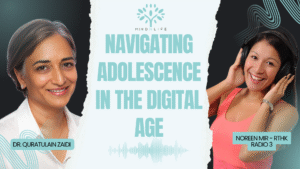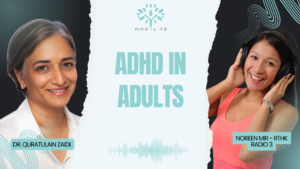(As published in Healthy Living Asia)
Teens management of their profiles can take a variety of forms – Pew Research asked teen social media users about five specific activities that relate to the content they post and found that:
- 59% have deleted or edited something that they posted in the past.
- 53% have deleted comments from others on their profile or account.
- 45% have removed their name from photos that have been tagged to identify them.
- 31% have deleted or deactivated an entire profile or account.
- 19% have posted updates, comments, photos, or videos that they later regretted sharing
TECH USAGE PER HOUR**
10-15 minutes = academic work
45-50 minutes = social media, chatting, gaming
**Done by informal survey
COMMUNICATION
93% = nonverbal (tone of voice, body language, facial expression, etc)
7% = verbal (spoken language, word choice)
40% of adults age 18-35 regret posting personal information
PEW RESEARCH CENTER STATISTICS (2013)*
SOCIAL MEDIA: IMMEDIATE CONSUMPTION AND RESPONSE
Facebook launched in 2004 followed by many more social–based platforms such as SnapChat. This means as a society we are still collectively trying to understand how these mediums affect communication, and how to effectively transmit ideas without 97% of typical communication available.
Teens are often gripped by the social pressure to be online6 QUESTIONS TO CONTEMPLATE BEFORE THE ‘CLICK’. This is exacerbated by the format of these immediate-response-required platforms, leading to various consequences on self-esteem, friendships and social-emotional learning. For example, many teens have jumped to correlate social media interactions with self-worth by measuring post “likes” and comments. When a teenager does not receive expected positive feedback from peers, he/she can quickly jump to conclusions…
My friend is upset with me…
I did something wrong…
My friends hate me…
At a time when the pre-frontal cortex is still maturing, quality decision-making is often compromised. Teens (and young adults) make knee-jerk reactions to social media and then conduct a series of misleading ‘research.’ Often the research means the teenager analyzes another person’s online activity to see when the other person was online last, if he/she was chatting to others (ignoring the post in question) and texting other friends to see if the post was upsetting.
In addition to compromised decision-making, teens are at a stage of development where they are looking for groups with whom to identify as a way of testing and forming their own identities. It gives them the sense of freedom when they can share their deepest, darkest secrets with a community. Not surprisingly, online this can have very detrimental consequences. Studies show that 19% of teens regret something posted, shared or communicated online whilst 40% of Internet users between the ages of 18-35 have regretted posting personal information.
6 QUESTIONS TO CONTEMPLATE BEFORE THE ‘CLICK’
- Am I okay with everyone seeing this now and for a long time after?
- Does this actually represent what I mean to communicate?
- Am I reacting to something?
- Is this just venting?
- Is this an appropriate forum to emotionally dump on?
- Is it offensive in any way?
5 POINTS TO DISCUSS BEFORE A MISCOMMUNICATION HAPPENS
- Support children as they begin social media interactions: Talk about the complexity of using only the written word. By answering each ‘Contemplate Before You Click’ question, the teenager can predict possible pitfalls in a post.
- Discuss drawbacks of social media: Why is social media good? Where have you/the teenager seen social media act for positive change? Find examples where social media has caused confusion, misunderstanding, judgmental discussions, and so forth. Discuss how the original poster could have done the post differently or if it would have been better to keep the post off social media.
- Discuss what to do and how the teenager can react is something does go poorly. Practising dialogue and possible interactions can help reduce anxiety and prepare the individual before any potential ‘crisis’ arises.
- Understand that online means ‘forever.’ Discuss situations where social media has caused long-lasting harm.
- Discuss the social pressure to be online, such as how can the teenager respond to pressure from friends to join different platforms or hide interactions from public viewers.
Approaching online communication thoughtfully and with increased self-awareness will result in better interactions over social media, overall more positive self-confidence and more positive friendship interactions.
ADDITIONAL READING – INTERNET RESOURCES
Washington Post: Risky Behaviour in Teens Explained by How Their Brains Change
Journal of Adolescent Health: Adolescent Maturity and the Brain
Science Direct: The Digital Revolution and Adolescent Brain Evolution
Pediatrics: Caffeine and Technology on Adolescents
Science Illustrated: Teenage Brains in the Digital World
BOOKS
Born Digital: Understanding the First Generation of Digital Natives

Dr. Quratulain Zaidi (BSc. Hons, MSc, MSc, PhD) is a mother and a member of the British Psychological Society and British Association Counselling & Psychotherapy and abides by the Ethical Framework for Good Practice in Counselling and Psychology. She has lived in Hong Kong and Singapore for 12 years. She specialises in assisting families with issues including parenting, teen issues, Cybersafety, marriage guidance, post natal depression, stress and anxiety disorders, depression, bullying, eating disorders, OCD and self-harm. She is an expert in educational assessments and learning challenges in children, for example ADHD, ADD, Dyslexia and ASD.







